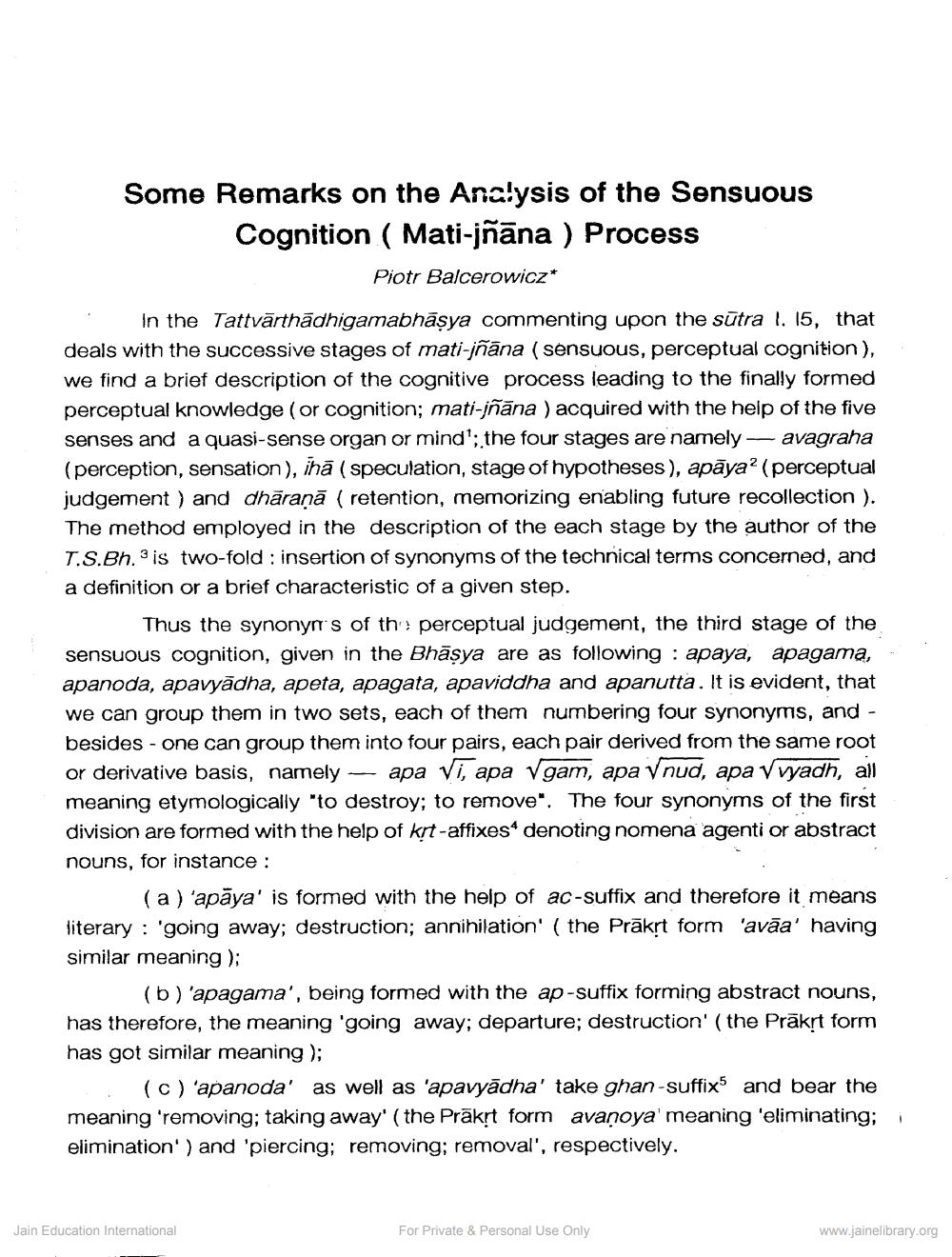Book Title: Some Remarks on the Analysis of the Sensuous cognition Process Author(s): Piotr Balcerowicz Publisher: Z_Parshvanath_Vidyapith_Swarna_Jayanti_Granth_012051.pdf View full book textPage 1
________________ Some Remarks on the Analysis of the Sensuous Cognition (Mati-jñāna) Process Piotr Balcerowicz* In the Tattvärthadhigamabhāṣya commenting upon the sūtra 1. 15, that deals with the successive stages of mati-jñāna (sensuous, perceptual cognition), we find a brief description of the cognitive process leading to the finally formed perceptual knowledge (or cognition; mati-jñana ) acquired with the help of the five senses and a quasi-sense organ or mind'; the four stages are namely avagraha (perception, sensation), iha (speculation, stage of hypotheses), apaya2 (perceptual judgement) and dhäraṇā (retention, memorizing enabling future recollection). The method employed in the description of the each stage by the author of the T.S.Bh. is two-fold: insertion of synonyms of the technical terms concemed, and a definition or a brief characteristic of a given step. Thus the synonyms of the perceptual judgement, the third stage of the sensuous cognition, given in the Bhāṣya are as following: apaya, apagama, apanoda, apavyädha, apeta, apagata, apaviddha and apanutta. It is evident, that we can group them in two sets, each of them numbering four synonyms, and - besides - one can group them into four pairs, each pair derived from the same root. or derivative basis, namely apa √i, apa √gam, apa √nud, apa √vyadh, all meaning etymologically "to destroy; to remove". The four synonyms of the first division are formed with the help of kṛt-affixes* denoting nomena agenti or abstract nouns, for instance : (a) 'apaya' is formed with the help of ac-suffix and therefore it means literary going away; destruction; annihilation' (the Präkṛt form 'avaa' having similar meaning); (b) 'apagama', being formed with the ap-suffix forming abstract nouns, has therefore, the meaning 'going away; departure; destruction' (the Präkrt form has got similar meaning); (c) 'apanoda' as well as 'apavyadha' take ghan-suffix and bear the meaning 'removing; taking away' (the Prakrt form avanoya' meaning 'eliminating; elimination') and 'piercing; removing; removal", respectively. Jain Education International For Private & Personal Use Only www.jainelibrary.orgPage Navigation
1 2 3 4
